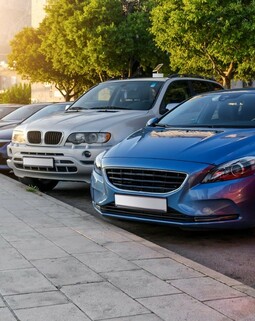The future demand for hybrid and electric vehicles is promising for Vietnam.
Climate change is a pressing issue in frontier countries like Vietnam.
Not only is there a valid argument to minimise global warming with the use of hybrid and electric vehicles, but also there is also an economic case to purchase hybrid cars as they start to become more affordable hopefully with new government subsidies and also hybrid/electric cars can significantly save costs on fuel.
Climate change in Vietnam can lead to a severe situation, in coming decades, Vietnam will be one of the most affected countries in Asia by global warming. Negative effects from global warming include higher sea level rise, displacement of communities and villages, floods and other natural hazards. Climate change will also have a severe impact on the country’s economy with higher unemployment and recession.
The Vietnam Government aims to reduce CO2 emissions by 2030 to combat against climate change. The Government has been cooperating with other countries and international organizations. For example, the Ministry of Natural Resources and Environment of Vietnam is hosting 58 foreign programs and projects to assist Vietnam in tackling climate change, with a commitment of nearly US$430 million, including funding from World Bank, the Holland government and the Denmark government.
Carbon emissions from vehicles that consume petrol are one of the main causes of climate change in Vietnam, especially in busy and industrial cities like Ho Chi Minh and Hanoi. In order to reduce traffic congestion, the Vietnam has started to implement city taxes on two-wheelers, with the objective of ultimately phasing out two-wheelers in city areas by 2030.
The adoption of electric vehicles and hybrid cars by Vietnamese consumers will also have a positive impact to fight against climate change. Although Vietnam does have an explicit policy or financial incentives in place for electric vehicle adoption, the Government has proposed preferential tax programs for environmentally friendly vehicles that run on electricity, are hybrid (run on gas and battery), bio-fuel powered vehicles, and vehicles that run on compressed natural gas (CNG).
Furthermore, the Ministry of Transport of Vietnam is working with the relevant government authorities on implementing strategies for developing environmentally friendly transport including preferential policies for electric automobiles, batteries, and parts.
The private sector has also stepped up to combat climate change. For example, in 2017, DiMora Enterprises signed a Memorandum of Understanding (MoU) on a US$500 EV-manufacturing project with Thanh Hoa province. Mitsubishi Motors in 2018 signed a MoU with the Ministry of Industry and Trade of Vietnam on research and development for electric vehicles.
These policies set by the Government and private companies are all steps towards the right direction. However, the largest barrier for purchasing hybrid and electric vehicles in Vietnam is the high cost of importing the vehicles and the limited access to specialist mechanics and parts for maintaining and servicing hybrid and electric vehicles.
This leaves a significantly large opportunity and market-gap for car dealerships and mechanics to specialise in importing, selling and servicing hybrids and electric vehicles. Here at VietWheels we welcome more electric vehicles and hybrid cars in Vietnam and work with a number of exclusive car dealerships that offer high-quality hybrid and electric cars, we encourage you to use our car search feature to stay up to date on finding the right hybrid or electric car for you.





